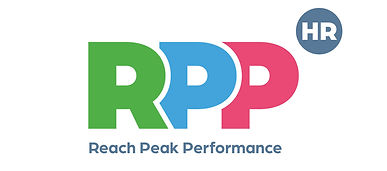Imposter Who? Edition 3 - Transforming Negative Self-Talk
- Emma Bisseker
- May 21, 2024
- 5 min read

In Edition 2 – Imposter Who? Self-Doubt and Working on Positivity, I shared my experience with challenging negative self-talk and the inner-voice along with some simple techniques that I’ve tried and that have worked for me. In this edition I want to go a little deeper into this and explore how you can help yourself with some techniques or get you thinking about how these techniques could work if you were to partner with a coach.
I thought I’d focus on:
· Transforming negative self-talk into positive affirmations
· Creating a supportive inner dialogue
· The impact of self-talk on self-belief
· Practicing self-encouragement and empowerment
Transforming negative self-talk into positive affirmations can be a powerful technique, particularly when we think about it in the context of imposter syndrome. It can also be quite intimidating to do. I know that when I started on this journey, I felt silly in some way, I guess it was because whilst I made the affirmations, I struggled to genuinely believe them. I’ve worked through this with a coach (and a counsellor) and on my own. If you’re familiar with having a coach you’ll know that the coaching doesn’t start and stop at the beginning and end of the coaching session, you’re accountable for continuing the journey outside the session.
A good starting point is to work on recognising the negative self-talk patterns that are happening and their impact on your thoughts, feelings and behaviours. You may not realise the impact that the self-talk is having on you or that they are even actually happening until you take time to think about what is blocking you from certain decisions or steps. Taking time to reflect and consider this can help us identify the self-talk. The recognition is a big step and once we have awareness of these, we can start to work with them. It’s not all about removing the thoughts, whilst they might be negative, I think they can be helpful and, I don’t know that we can remove them completely, there will be times that they pop back. If you’ve managed this, please let me know. Once we are aware, it might be that some of the thoughts are helpful and others not. So, what do we do with them?
For us to work out whether the thoughts are helpful or not we need to challenge the negative thoughts. As these thoughts are in our own minds, we have control over what we do with them and how we treat them although it doesn’t always feel like it. If the thoughts are negative and we start to challenge them, we can start to provide a response which counteracts them. Also, once we are aware of the thoughts we can start to reframe them into positive affirmations. We can do this by using our strengths, accomplishments, acquired knowledge and experience using real examples to start to reframe. You might want to consider using a journal to capture negative thoughts and counter them with a positive affirmation too – journaling works for some people but not everyone which is true of everything I’m sharing. It took me some time to get used to journaling and I don’t do it every day, I do it when I feel I need to.
One of the things that I am still working on today and have found the hardest, and which I’ve talked about before, is praising myself and recognising my achievements, so turning the negative thoughts into positive affirmations has taken a lot of practice. I still have to work on practicing gratitude, if you want to practice this technique you will need to take time to identify your abilities, perhaps sit for a while, with no distractions and think about what you’ve done, achievements you’ve had both professionally and personally, your journey, experiences you’ve had, obstacles you’ve overcome. This is expanding on what we covered in the previous paragraph. Recognise these and acknowledge them with positivity. You can also think about the achievements and successes as they happen and celebrate them in real time. Try giving yourself an internal high five or share with colleagues, friends or note them in your journal as we said.
We all work differently and when working with clients I always look for what will work best for my client and when I’m working on myself, yes, you guessed it, I work out what works for me. For my clients I think about how they will get the most out of our time together, how they respond to different styles and techniques and what really gets them excited and helps them focus. This helps work through what tools will be best for them. For example, if you are a visual person, you could start to see the achievements etc. in your mind, think back to the situation for example and see yourself in it and then reflect on how you felt, how you acted, what you did, what does the success look like? You can then try to apply this to a current situation that you are working through and visualise what the success will look like, what will be different if you see things positively, will you smash that job interview for example, visualise yourself in the interview, having presence in the room, keeping the attention of the interview panel, responding confidently to questions with examples of your success.
Switching to positive self-talk can significantly impact our way of being and practicing these techniques can reinforce confidence in our abilities. It can also reduce anxiety and stress as we start to replace our negative, self-deprecating thoughts with positive, constructive ones and this in turn helps us build strength in handling challenging situations with calmness. When we continue to allow negative self-talk to influence us it leads to self-doubt and can make us reluctant to take on new challenges or opportunities or if we do, we can be filled with anxiety and fear, they can keep us in a state of static and limit our personal growth.
My first step was recognising the negative thought patterns and processes that I was experiencing, the impact they were having and then by working with a coach and doing the work myself I started to take control of the impact the thoughts were having so that they stopped holding me back.
Find out more about how a coach can help by contacting me at info@reachpeakperformancecoaching.co.uk or take a look at my website for more information www.reachpeakperformancecoaching.co.uk
There are other routes to support depending on the impact our thoughts are having, and these can include Cognitive Behavioural Therapy or working with a trained counsellor.



Comments